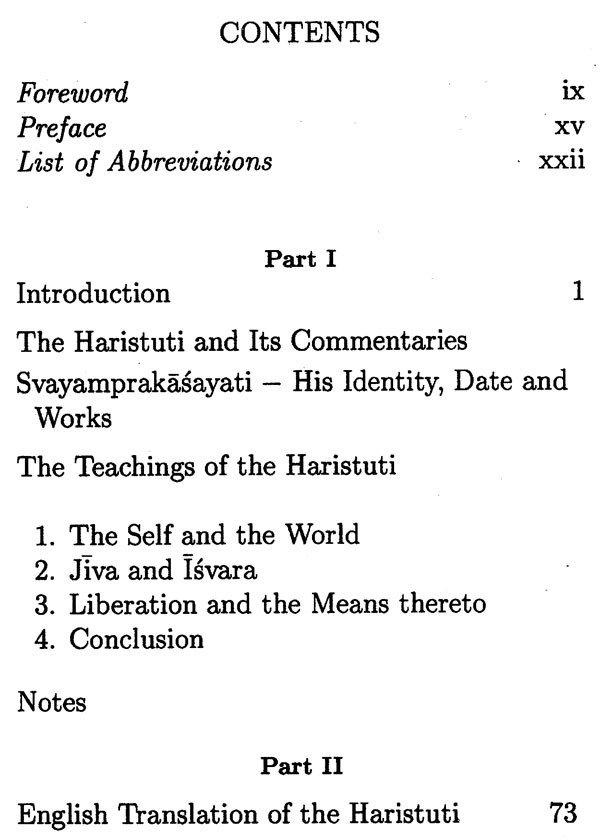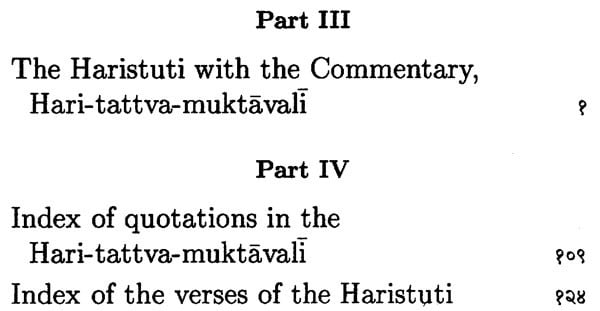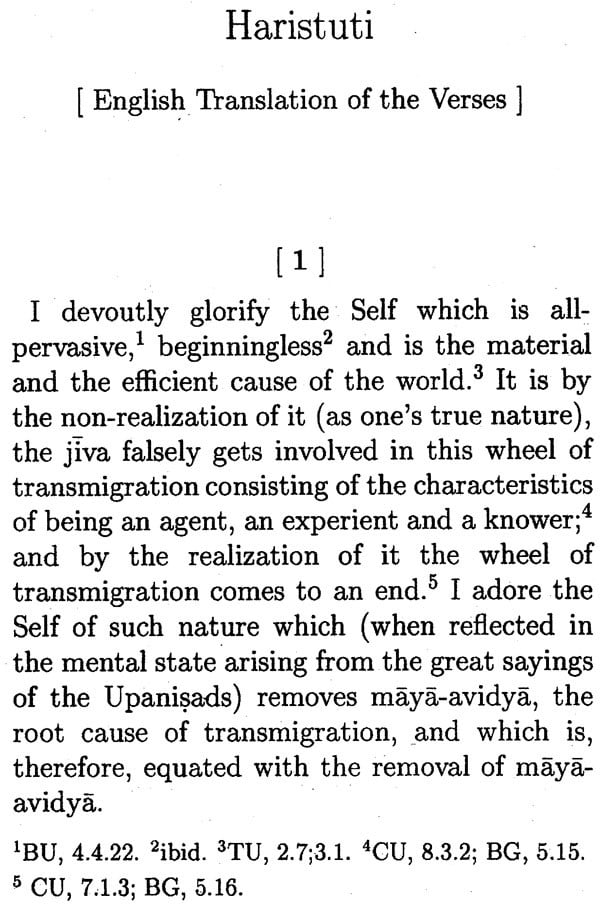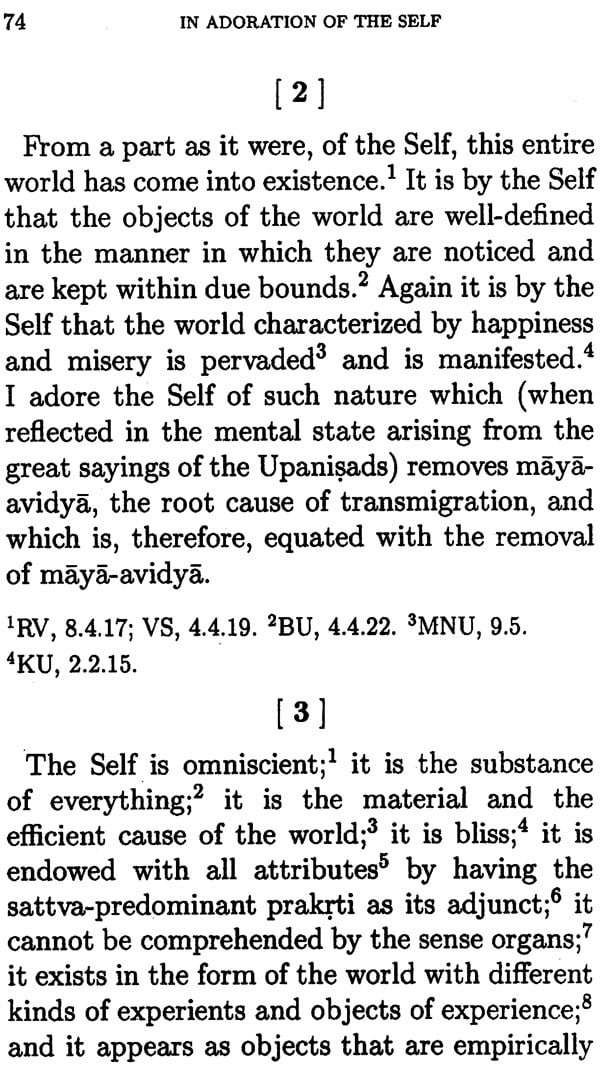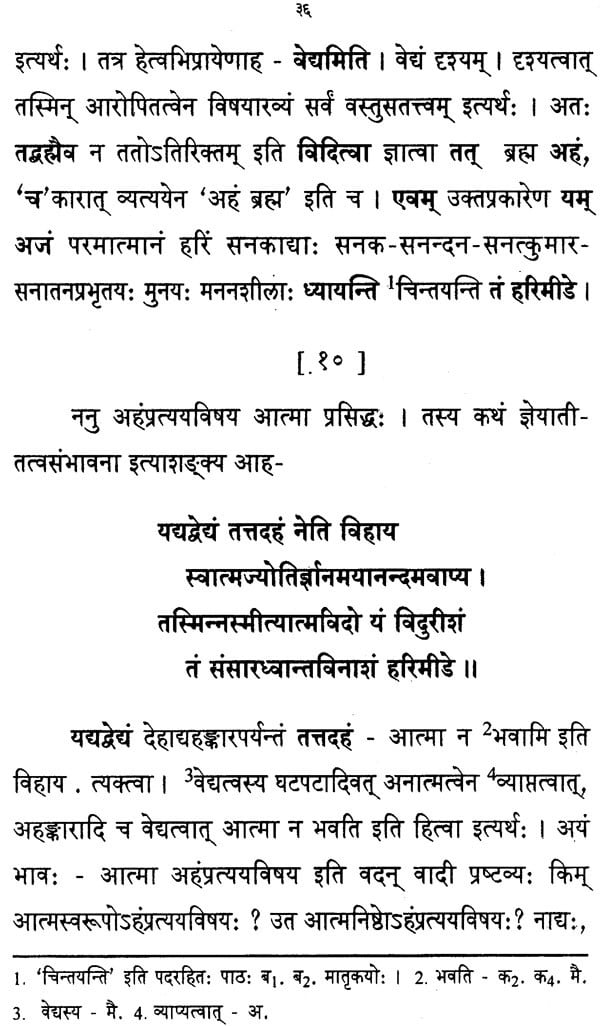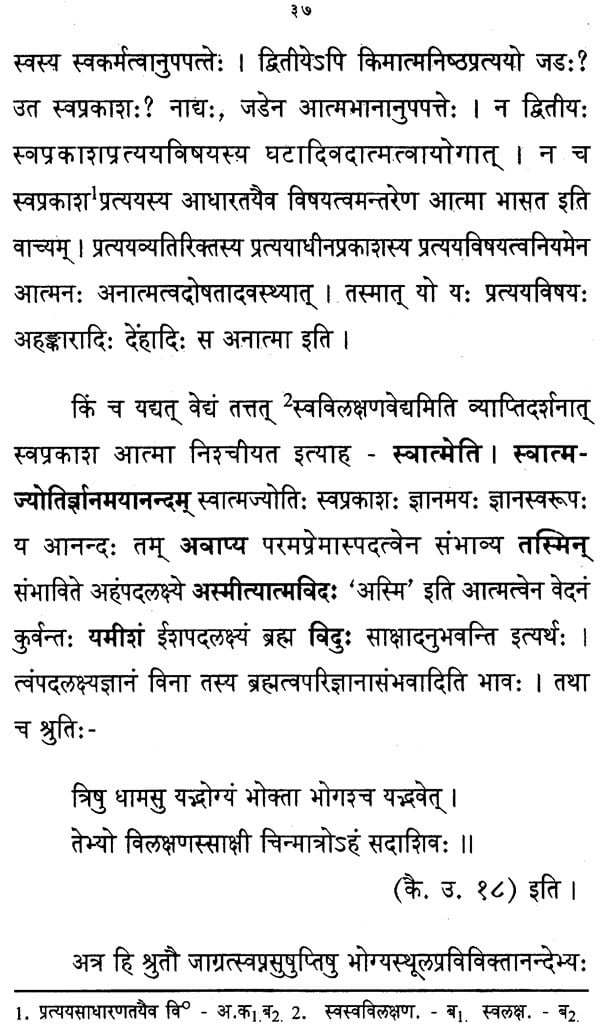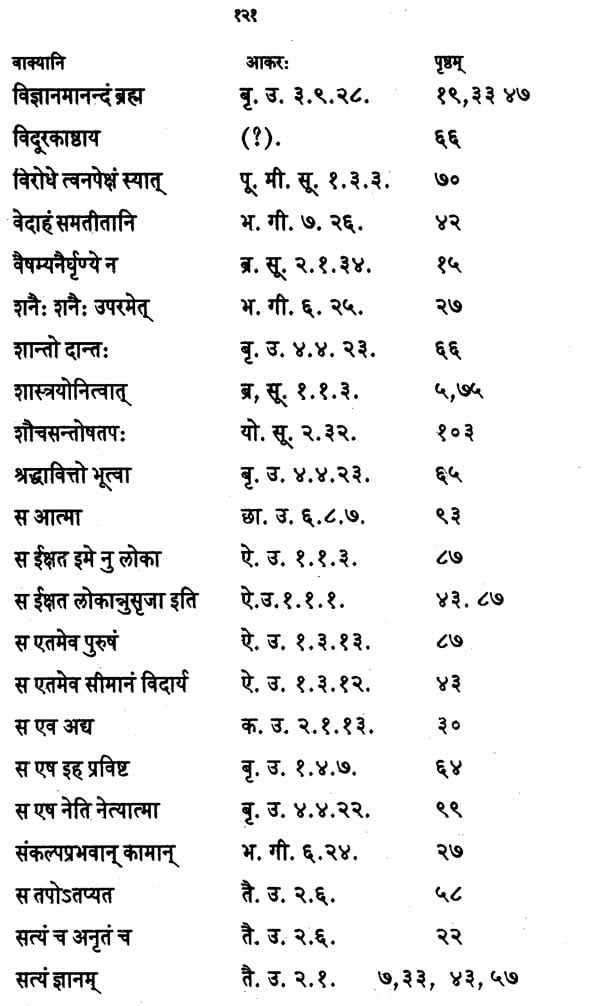
In Adoration of the Self: The Haristuti of Sankara With the Commentary Haritattvamuktavali of Svayamprakasayati
Book Specification
| Item Code: | NBZ892 |
| Author: | Veezhinathan |
| Publisher: | ADI SANKARA ADVAITA RESEARCH CENTRE |
| Language: | Sanskrit and English |
| Edition: | 2021 |
| Pages: | 225 |
| Cover: | PAPERBACK |
| Other Details | 8.50 X 5.50 inches |
| Weight | 400 gm |
Book Description
Sankara elucidated the teachings of the Upanisads and consolidated the tradition of Advaita through his numerous writings. He wrote commentaries on the prasthana-traya.
This edition is based on seven paper manuscripts in Devanagari script, five of which belong to the Asiatic Society, Calcutta, and two, to the Bhandarkar Oriental Research Institute, Pune. The details of the manuscripts are as follows:
Manuscripts at the Asiatic Society, Calcutta: (1) No. G. 8563. Substance - Country-made paper. 81 x 4 inches. Folia 89. Extent in glokas, 1700. Character, Nagara.
(2) No. G. 8904. Substance - Country-made paper. 10 x q- inches. Folia 61. Extent in glokas, 1440. Character, Nagara.
(3) No. G. 609. Substance - Country-made paper. Character, Nagara. The title of the work is given as Harimidestotra.
(4) G. 10973. Substance - Country-made paper. 13 x 7 inches. Folia 32. Extent in glokas, 1280. Character, Modern Nagara.
(5) No. G. 10479. Substance - Country-made paper. 112 x 5 inches. Folia 41. Character, Nagara.
Manuscripts at the Bhandarkar Oriental Research Institute, Pune: (1) No. 84 and 215 of 1902 - 1907. New No. 23. Folia. 84. Character, Devanagari.
(2) No. 647 of 1884 - 87. New No. 24. Folia. 38. Character, Devanagari.
Apart from these manuscripts, there are two printed editions of the text Haristuti with the commentary, Hari-tattva-muktavali, which have also been used in compiling this edition.
The Haristuti has two commentaries - one by Anandagiri, the well-known commentator on many of the works of Sankara and the other one by Svayamprakasayati, which is presented herein. The text of the Haristuti with the commentary of Anandagiri known as Bhasya was published in the Adyar Library Bulletin (Vol. 35) in 1971.
Svayamprakasayati His Identity, Date and Works
Svayamprakasayati, the author of the commentary Hari-tattva-muktavali on the Haristuti, is well-known in the Advaita tradition as the author of the commentary Rasabhivyanjika, on the work, Advaita-makaranda, of Laksmidhara. This work was published at the Sri Vani Vilas Press, Srirangam in 1926. He has also written a commentary entitled ,Tattvasudha on the Daksinamurti Astaka of Sankara.
Book's Contents and Sample Pages
